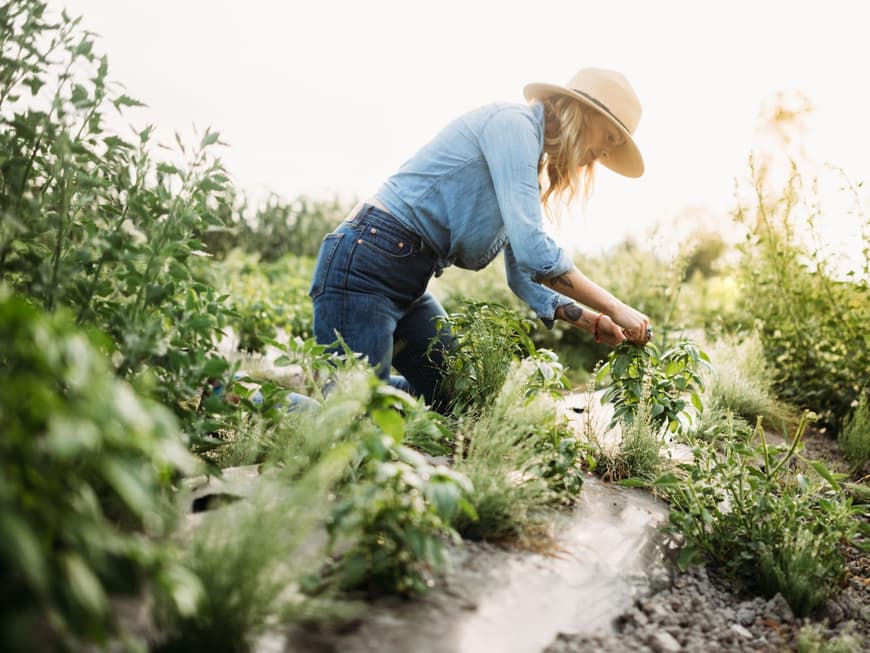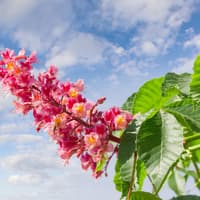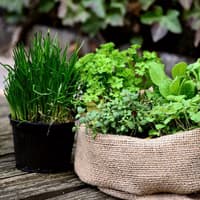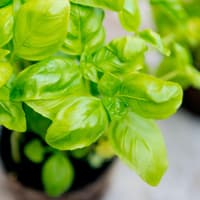
Instructions Although the herbs grow freely in meadows and along paths, experts warn against simply picking them. On the one hand, because some of them are endangered, and on the other, because they can be contaminated with harmful substances. Certain plants also resemble poisonous relatives. However, there is now a wide range of workshops with herb educators. Here you can harvest wild plants under guidance.
Processing When collecting, you should proceed gently, cutting off the little plants and not pulling them out roughly. This allows them to grow back. It is best to transport them in a basket, wash them well at home and either enjoy them fresh or dry them gently in the oven. This is the best way for the herbs to develop their heavenly aroma.
Lesser celandine
Effect: From spring tiredness to hemorrhoids - it has many uses.
Use: Caution! The fresh leaves may only be eaten in small quantities and only before flowering, after which they are poisonous. Dried, however, they can still be used - as a tea or sitz bath.
Dandelion
Effect: Not a weed! The young leaves contain a lot of vitamin C. The bitter substances in dandelion regulate digestion. However, if you have kidney or gallbladder problems, you should talk to your doctor first.
Use: The leaves can be eaten fresh as a salad or dried as a tea: bring 2 teaspoons to the boil with 200 ml water and leave to infuse for 10 minutes.
Ribwort plantain
Effect: Good for inflammation in the mouth, sore throat and coughing. Its ingredient aucubin makes it a natural antibiotic by protecting the mucous membranes.
Directions: Pour 250 ml of boiling water over 2 teaspoons of dried ribwort leaves, cover and leave to infuse for 10 minutes, then strain. 3 cups a day.
Violet
Effect: This pretty little flower helps with coughs and bronchitis. Because it is diaphoretic, it is also often used to treat fever.
Use: Boil 2 teaspoons of dried flowers with 250 ml of cold water, leave to infuse for 5 minutes, strain. The flowers also look great in salads.
Birch leaves
Effect: The delicate green of the so-called tree of youth is considered invigorating and refreshing and is often used for bacterial and inflammatory urinary tract infections due to its draining effect. But also for rheumatism and gout.
Application: Drink a cup of tea between meals: infuse 1 tablespoon with 1 cup of boiling water for 15 minutes.
Elderberry
Effect: The white elderflowers help against rheumatism, gout, fever, phlegm and when falling asleep.
Use: Pour 1 cup of boiling water over 2 teaspoons of dried elderflowers, cover and leave to infuse for 5 minutes. Drink 3 to 4 cups a day - preferably in the second half of the day, when it works better.
Lovage
Effect: Many people also call this medicinal plant Maggi herb, because it really does smell a bit like the spice. Lovage is effective against stomach ache and intestinal complaints.
Use: Chop the roots into small pieces, then pour 250 ml of boiling water over 1-2 teaspoons and leave to infuse for 10 minutes. Drink 3 cups a day. Dry the leaves and use later as a spice.
Woodruff
Effect: Its ingredients have a calming effect and help with headaches and migraines. And of course it is a must at every summer party.
Use: Harvest before flowering, allow the leaves to wilt and soak them for 2 hours in lemonade or wine for a punch.
Watercress
Effect: Boosts the metabolism, is considered appetizing but also diuretic. Helps with inflammation in the mouth.
Application: Watercress should be eaten fresh, only then does it develop its full effect. Tastes great in salads, on bread and goes well with scrambled eggs.
Ground ivy
Effect: The all-rounder: even our grandmothers used ground ivy for poorly healing wounds, bronchitis, urinary tract diseases and colds.
Application: To prevent its essential oils from evaporating so quickly, it is boiled in whole milk. 2 tablespoons of herb to 500 ml of milk.
You may also be interested in this:






